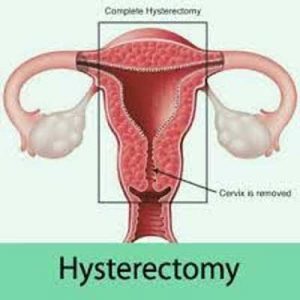- Home
- Editorial
- News
- Practice Guidelines
- Anesthesiology Guidelines
- Cancer Guidelines
- Cardiac Sciences Guidelines
- Critical Care Guidelines
- Dentistry Guidelines
- Dermatology Guidelines
- Diabetes and Endo Guidelines
- Diagnostics Guidelines
- ENT Guidelines
- Featured Practice Guidelines
- Gastroenterology Guidelines
- Geriatrics Guidelines
- Medicine Guidelines
- Nephrology Guidelines
- Neurosciences Guidelines
- Obs and Gynae Guidelines
- Ophthalmology Guidelines
- Orthopaedics Guidelines
- Paediatrics Guidelines
- Psychiatry Guidelines
- Pulmonology Guidelines
- Radiology Guidelines
- Surgery Guidelines
- Urology Guidelines
Even ovarian conservation does not alter increased risk of heart disease after hysterectomy

Hysterectomies are often the recommended treatment for women suffering from heavy menstrual bleeding and other gynecologic problems.Many surgeons are opting to leave a woman's ovaries intact after hysterectomy as it is thought that it reduces the associated increased risk of heart disease after hysterectomy.A new study has been found out that women (especially those aged younger than 35 years) having a hysterectomy with ovarian conservation are still at increased risk. This implies that Even ovarian conservation does not alter increased risk of heart disease after hysterectomy.The results of the study have been published in Menopause, the journal of The North American Menopause Society (NAMS).
Hysterectomies are often the recommended treatment for women suffering from heavy menstrual bleeding and other gynecologic problems. More than 400,000 hysterectomies are performed each year in the United States, most for benign disease. Although multiple studies have previously documented an increased risk of cardiovascular disease and other chronic problems from hysterectomies involving the removal of both ovaries, few studies have focused on the health risks after the removal of only the uterus.
The article "Cardiovascular and metabolic morbidity after hysterectomy with ovarian conservation: a cohort study" details results from the nearly 22-year follow-up of more than 2,000 women who underwent hysterectomy with ovarian conversation for benign indications. The study found that these women experienced increased risks of hyperlipidemia (a high concentration of fats in the blood), hypertension, obesity, cardiac arrhythmias, and coronary artery disease. Women who underwent hysterectomy aged 35 years or younger had a 4.6-fold increased risk of congestive heart failure and a 2.5-fold increased risk of coronary artery disease.
"These study results suggest that alternative uterine-preserving treatments may need to be considered more often in lieu of hysterectomies, especially in benign situations," says Dr. JoAnn Pinkerton, NAMS executive director. "For those women having hysterectomy, hormone therapy should be considered for added protection, because ovarian function appears to be impaired by the surgery."

Disclaimer: This site is primarily intended for healthcare professionals. Any content/information on this website does not replace the advice of medical and/or health professionals and should not be construed as medical/diagnostic advice/endorsement or prescription. Use of this site is subject to our terms of use, privacy policy, advertisement policy. © 2020 Minerva Medical Treatment Pvt Ltd